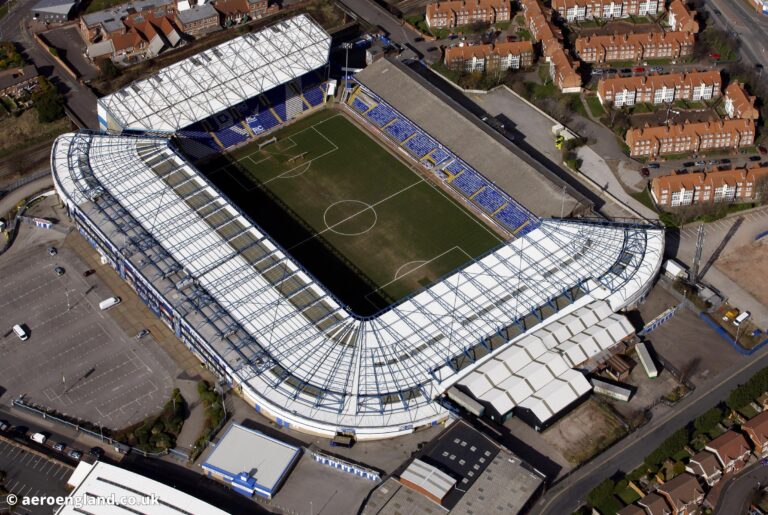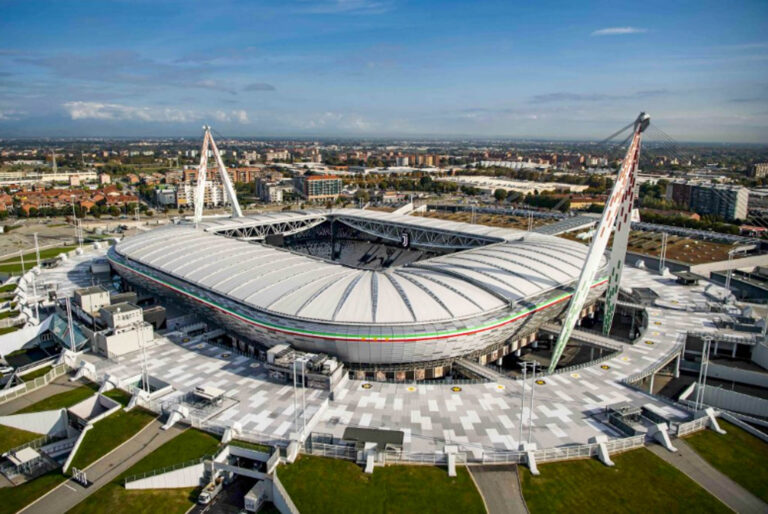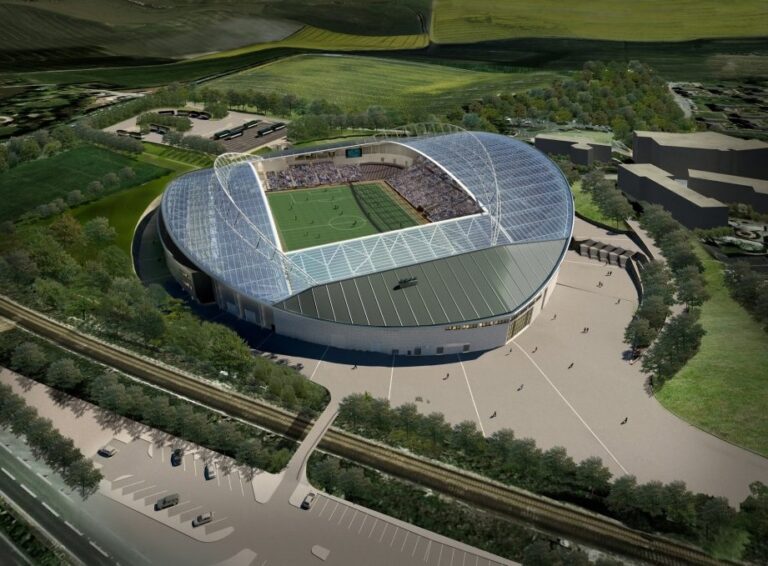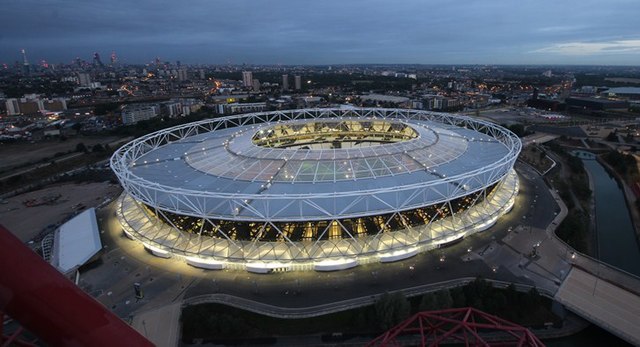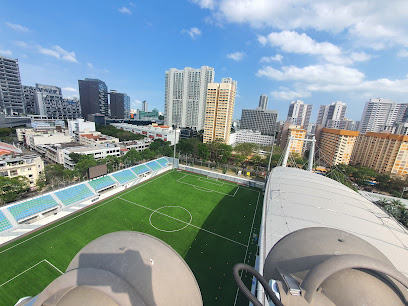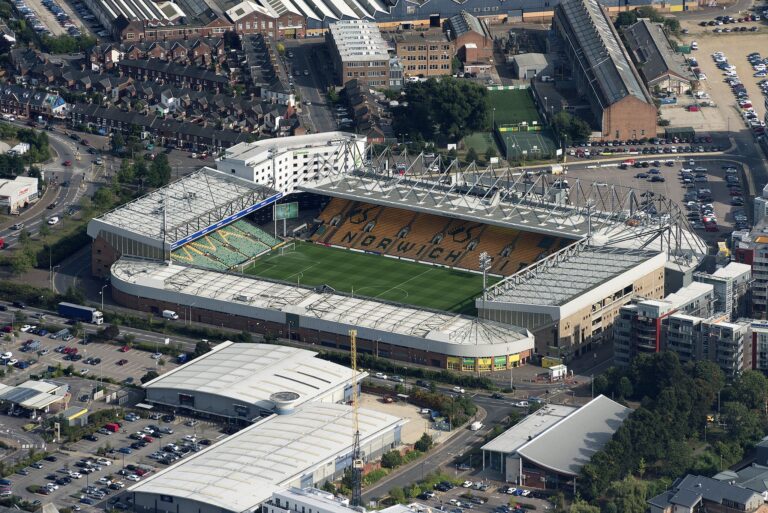Eden Park Stadium Capacity, Tickets, Seating Plan, Records, Location, Parking
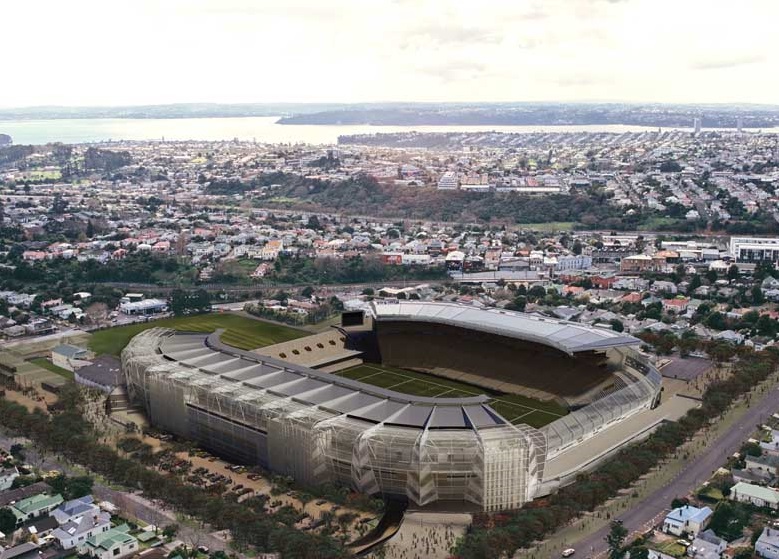
Eden Park is a sports stadium in Auckland, New Zealand. It is the largest stadium in New Zealand and is known for its distinctive roof, which is shaped like an inverted bowl. The stadium is home to the Auckland Blues, a professional rugby team, and the Auckland Aces, a professional cricket team. It has also hosted a number of major sporting events, including the Rugby World Cup and Cricket World Cup. In addition to sports, Eden Park has also hosted concerts and other events.
Eden Park is considered one of rugby union’s toughest assignments for visiting teams. The New Zealand national rugby union team, the All Blacks, have been unbeaten at this venue in 48 consecutive Test matches dating back to 1994. Eden Park is the site of Te Matatini 2021. It hosted the Women’s Cricket World Cup 2022, the final of the 2021 Rugby Women’s World Cup and will host the opening match of the 2023 FIFA Women’s World Cup. In 2011 it hosted group games, two quarterfinals, both semifinals and the final of the 2011 Rugby World Cup. In doing so, it became the first stadium in the world to host two Rugby World Cup finals, having held the inaugural final in 1987. It hosted the 2015 Cricket World Cup, which was jointly hosted by Australia and New Zealand.
| Built In: | 1900 |
| Capacity: | 48,276 |
| Home Teams: | Auckland |
Eden Park Stadium History
Origins of Eden Park
The land where Eden Park stands was originally a marshy area, fed by lava caverns created by Maungaghau/Mount Eden and Mount Albert over 30,000 years ago. Tāmaki Māori used the swamp to gather food and materials. In 1845 the Cornish farmer John Walters bought the area. Eden Park has been a sports ground since 1900. The park began as a cricket ground in 1903 and was due to the vision of Harry Ryan, a cricket enthusiast who approached landowner John Walters about leasing part of his land as a pitch. sports. In the book Eden Park: A History, the authors write: “Indeed, the rough, boulder-strewn paddock, dotted with rocky outcroppings and dotted with sheep, dropping into a muddy channel that filled with a downpour and remained flooded throughout the winter, seemed more suited to frog or duck shooting than cricket, let alone rugby. Ryan knew or at least imagined better.” Much initial work was needed on the cricket ground, including clearing the stone walls that had been used to divide farmland and ongoing drainage problems.
Those who saw Ryan’s vision as folly probably felt vindicated when, in 1907, heavy downpours saw the ground submerged in water for a week. The same thing happened again later in the year. By 1910, ongoing maintenance costs led to the Eden District Cricket Club approaching the Auckland Cricket Association to take over the management of the park. By 1912 the land had been transferred from John Walters to the trustees of the cricket association, financially backed by several well-known Auckland businessmen. The name ‘Eden Park’ came into general use around 1912, shortly after the association took it over.
Opening as a cricket and rugby venue
In 1913 the park was leased to the Auckland Rugby Football Union, becoming both a summer and winter sporting venue, with the union initially leasing the venue for 21 years. The union agreed to pay to build the park’s first stand, erected in 1913 to hold an audience of 2,500, and later followed by a second members’ stand built-in 1914. In 1914, the first international cricket match was held, with Auckland hosting Australia. . The first rugby match played at the venue was a seven-player series on 9 May 1914, with the first representative match being played on 5 September against Wellington. Drainage problems ceased to be a regular problem for Kingsland and Eden Park in the 1920s, after which the park began to flourish. The first test of rugby union took place on August 27, 1921, when South Africa beat New Zealand 5-9 before a crowd of 40,000. The Auckland Rugby Football Union officially made Eden Park their home in 1925 and in 1926 a trust was established to run Eden Park primarily for the benefit of Auckland Cricket and Auckland Rugby.
In 1930 the ground hosted its inaugural British and Irish Lions matches as part of the 1930 British Lions tour to New Zealand and Australia. Matches were played against teams from Auckland and New Zealand, both won by the locals with an attendance of 45,000 in the latter. The ground hosted its first match between New Zealand and Australia as part of the 1931 Australian rugby union tour of New Zealand. New Zealand won 20 to 13. In 1933 New Zealand hosted England in the first Test cricket match where Wally Hammond set a single Test batting record of 336 not out.
Eden Park served as the opening ceremony and athletics venue for the 1950 British Empire Games, when the western part of the grounds was first opened. In 1955 New Zealand hosted England in the second Test match of their 1954–55 New Zealand Tour. During the same year, the New Zealand Parliament passed the Eden Park Trust Act, enshrining the park’s governance structure until 2009. In 1956, the West Stand was completed, followed by the South Stand in 1958. New Zealand won its first cricket test. match against the West Indies as part of New Zealand’s 1955–56 West Indies tour. The ground hosted its third international rugby match between New Zealand and South Africa. New Zealand won 11 – 5 before a record crowd of 63,000. The British and Irish Lions returned for a third time on the 1959 British Lions tour to Australia and New Zealand with matches against Auckland and New Zealand. The visitors win both, their first test match victory on the ground.
During the 1960s and 1970s, more large-scale events were held at the venue, including the 1961 French tour of New Zealand and Australia, the 1963 England tour of New Zealand, the rugby union tour of Wales in 1969 for Oceania, a welcome party for the royal family. during the 1970 New Zealand royal visit honours, the Australian tour of New Zealand (1973–1974) and a gymnastics exhibition performed by touring Russian gymnasts including Olga Korbut. During Scotland’s 1975 rugby union tour of New Zealand, both teams played during a downpour on a completely saturated pitch, before the single test had to be canceled because the drainage system could not cope with the flooding.
During the 1981 Springbok Tour, a low-flying Cessna 172 flown by Marx Jones and Grant Cole disrupted the final test by dropping flour bombs over the field.
The 1980s saw a number of record-breaking events, such as a crowd of 43,000 at the 1981–82 Tour of Australia of New Zealand, where Australian batsman Greg Chappell dealt with a streak on the ground with his bat. An indoor cricket facility and grandstand were built next to the outer oval. In the inaugural Rugby World Cup, co-hosted by Australia and New Zealand in 1987, New Zealand defeated France 29-9 in the final in front of 48,035 spectators. In 1988, Eden Park hosted the 1988 Rugby League World Cup Final, with Australia defeating New Zealand 25 to 12 before a New Zealand rugby league record crowd of 47,363. This was the first rugby league game played at Eden Park since 1919. Eden Park hosted the 1992 Cricket World Cup, co-hosted with Australia.
In 1996 the new Auckland Blues began play at the ground, with the inaugural Super 12 final being held at the ground, with the
2011 Rugby World Cup and redevelopment
In 2007, the ground was confirmed by the New Zealand government as the venue for the 2011 Rugby World Cup Final, with redevelopment beginning in 2008. The ground was the subject of a much-debated dilemma, as to whether the event should be headquartered in the historic Eden Park or in a new stadium in the center of the city. The redeveloped stadium was officially opened by New Zealand Prime Minister John Key on 10 October. The first event was a Rugby League Four Nations doubleheader, which included matches between England and Papua New Guinea, and Australia and New Zealand.
The 2011 Rugby World Cup kicked off on 9 September, with New Zealand defeating Tonga 41-10 before a crowd of 60,214. In addition to the opening ceremony and the match, five group games, two quarter-finals, both semi-finals and the final are held at Eden Park, with a cumulative attendance of over 600,000. New Zealand defeated France 8 – 7 before a crowd of 61,079. The ground hosted its first professional football match, with the Wellington Phoenix hosting Adelaide United to a crowd of 20,078.
In 2013, the New Zealand Warriors announced that they would play three home games at Eden Park in the 2014 NRL season.
Auckland Council takes over five of the nine seats on the Eden Park Board of Trust, giving taxpayers control on the ground.
In 2015, it hosted four matches during the 2015 Cricket World Cup, which was co-hosted by Australia and New Zealand, including the first semi-final between New Zealand and South Africa. The stadium hosted its first day and night Test match during the English cricket tour in 2018.
In 2020, after 117 years, Eden Park sold the naming rights for a week to its partner ASB. As part of its commitment to small businesses in New Zealand, ASB has granted its naming rights to Coopers Catch, a small fish and chip shop in Kaikōura.
In 2021, for the first time since 1975, Eden Park hosted a concert, headlined by the band Six60, to a sold-out crowd of some 50,000. The concert was also one of the biggest in the world at the time, due to COVID-19.
Stadium Capacity
Eden Park Stadium has a seating capacity of 48,276.
Eden Park Stadium Seating Plan
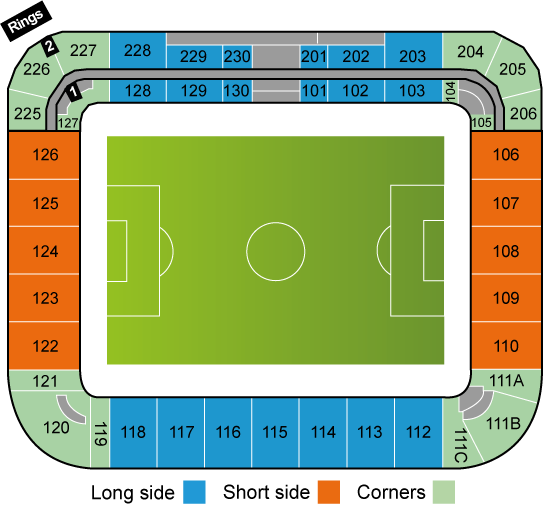
Notable Events & Records
Not Yet.
Upcoming Events
FIFA Women’s World Cup 2023.
Parking
There is no parking at Eden Park on game day for the general public and all vehicles must display a proper parking permit.

